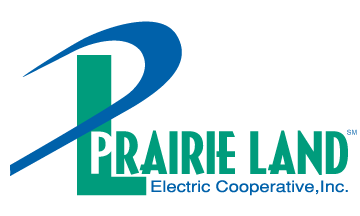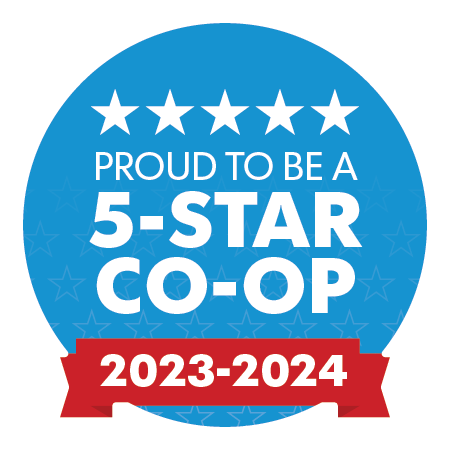Recently, there has been significant publicity about the acquisition of private property in Kansas for the National Interest Electric Transmission Corridors (NIETC). As part of Cooperative Principle No. 5 — Education, Training and Information — it is our responsibility to keep our members informed. Therefore, I would like to share the below article by Kathleen O’Brien, general manager of Nemaha-Marshall Electric Cooperative, which sheds light on this important issue.
I’m going to address a [sensitive] subject that arose in July regarding the Department of Energy (DOE) study on transmission corridors. NIETC designations are not new and are evaluated every three years. The Federal Power Act authorizes the Secretary of Energy to designate any geographic area as an NIETC. The secretary of energy must show that area consumers are harmed because of a lack of transmission and that development of new transmission would advance important national interests, such as increased reliability and reduced consumer costs.
There are four phases to the NIETC designation process.
PHASE 1
The most recent NIETC process began Dec. 19, 2023, which opened a 45-day window for public recommendations for NIETC designations.
PHASE 2
Phase 2 involved the issuance of the list of 10 potential corridors including Midwest Plains, which traverses northern Kansas following essentially the same path as Grain Belt Express. Phase 2 ends after a 45-day window for receiving public comments on those 10 options. DOE then uses comments and information received to narrow the list and announces which potential NIETCs will move to Phase 3, which will occur in fall 2024.
You may subscribe to receive updates from the DOE’s Grid Deployment Office at https://public.govdelivery.com/accounts/USDOEGDO/subscriber/new.
After subscribing, select the “Building Better Grid Initiative and Transmission Planning” topic to receive NIETC notices.
PHASE 3
In Phase 3, the DOE will refine the geographic boundaries of the potential NIETCs, begin environmental reviews, and conduct additional public engagement, such as public meetings and workshops. At the end of Phase 3, the DOE will release a draft NIETC designation report for additional comments.
PHASE 4
During Phase 4, the DOE will issue its final NIETC designation report with a smaller subset of designated corridors. DOE is under no obligation to name a certain number of corridors; they could even end up not designating any corridor. The process begins again in three years.
WHAT THE NIETC DOES AND DOESN’T DO
The NIETC process comes into play when you need to build interstate transmission line, but one or more states with siting authority is holding it up or denies an application for construction.
If a corridor is designated as an NIETC, the Federal Energy Regulatory Commission (FERC) can step in and pre-empt state siting authority and certify a transmission company to build a needed line if the state is not getting the job done.
The DOE NIETC process does not:
- Determine the specific route.
- Build the line; or
- Issue permits to build the line.
Permitting authority remains with the state or FERC.
The DOE designation of a corridor simply assists a transmission company in getting its line built.
Because the DOE does not determine a specific route, the potential NIETC can range in width from less than 1 mile to nearly 100 miles, with lengths ranging from 12 to 780 miles that can be used by a transmission company to determine the best path for a transmission line.
In the case of the Midwest Plains NIITC, the width is five miles. The siting for any transmission path must still be approved by the Kansas Corporation Commission (KCC) unless the FERC has preempted state authority, as I explain above.
A NIETC DESIGNATION DOES NOT LEVEL A FIVE-MILE-WIDE PATH THAT CLEARS EVERY FARMSTEAD OR TOWN IN THE DESIGNATED CORRIDOR. Any transmission company that wants to build a line in the corridor must apply to the KCC. Currently the only KCC- approved transmission line in this area is the Grain Belt Express.
We cherish our North Central Kansas and need to remain vigilant if another entity applies to the KCC for a new transmission line. At that time, you can once again be part of the process to protect our rich Kansas farms and pasturelands.
If you have any further questions after reading this article, please contact Prairie Land’s Director of Member Services, Elena Larson, at 785-877-3323.

